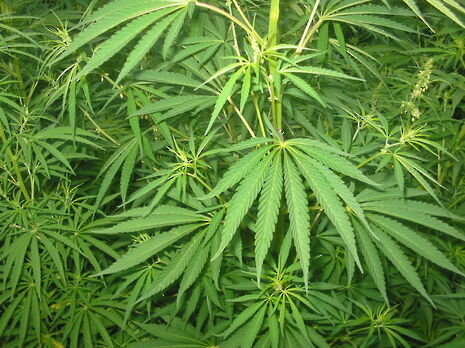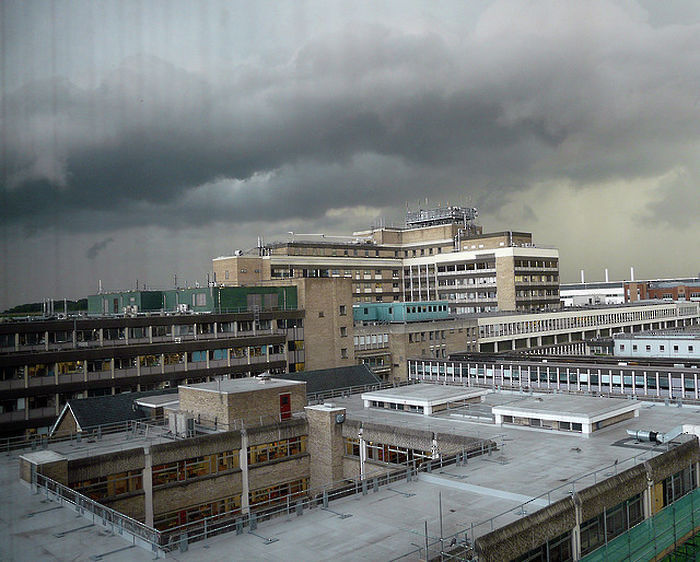Decriminalisation would make drugs safer
Whilst drugs have remained legal their damage has grown. It is time to legalise and regulate them, says Louis van Boxel Woolf

The world has a drugs problem. The problem is not people using them. Curiosity, excitement or addiction mean that humans have been taking drugs for thousands of years, and they will take them for thousands of years more. The problem is the way people use them. Antiquated policies put hardcore drugs in the hands of teens and hardcore profits in the pockets of organised criminals. In the last few years, overdose deaths, particularly from heroin and cocaine, have continued to rise.
Much of our thinking on drugs is hopelessly muddled. Damian Green, the Conservative MP, and Tim Martin, founder and CEO of Wetherspoons, have both recently opposed legalising cannabis for general use on the basis that the cannabis sold today is more addictive and more harmful than ever before. But cannabis has been criminalised over this time period. Cigarettes and alcohol have been regulated and taxed. Alcohol has not become generally stronger and more addictive in the meantime, while the number of smokers is at a record low.
The free market and the profit motive are powerful things. Even the world’s most remote villages have mobile phones and a pint can cost less than £3 at one of Tim Martin’s pubs. By criminalising drugs we have removed all control and regulation and gifted addictive substances to an unscrupulous underground market. With various drugs, the supply chain has given customers what they demand: harder and cheaper drugs. For some inquisitive teenagers this has been a blessing. It is in some sense easier for many of them to purchase illegal drugs than cigarettes as, with the rise of the internet, drugs can be delivered to your door. Moreover, the off-licence asks for ID; the dealer asks for a £20 note. For others, lives have been lost and brutal suffering inflicted.
“The supply chain has given customers what they demand: harder and cheaper drugs”
This goes beyond drug users. If problems arise involving legal drug dealer like Tim Martin and his pub chain, a safe and transparent legal procedure follows, as alcohol abuse laws are well-established. An illegal drug dealer does not have access to this kind of justice. He makes his own and there are no legal limits. Take the example of Mexico: she is unlucky enough to be stuck between the wealthy United States and the cocaine producing nations of South America. The Mexican government has, according to CNN, been fighting what amounts to a war with drug cartels in its own territory since 2006.
It is time to abandon flawed arguments. Many say drugs should be illegal because they are dangerous. Rather, because they are dangerous they should be legal. Regulation and control will make drug use as safe as possible, from the suppliers to the consumers. Boxing, horse-riding and shooting are just three of many enjoyable but risky activities which we are sensible enough not to make illegal. We know that they would happen anyway. We control them to make them as safe as possible. This should neither be an ideological issue, nor an issue of the relative safety or dangers of drug use, but simply one of pragmatism versus dogmatism. Drugs are being, have been and will be taken; the point is to take them as safely as possible.
This realisation is gradually dawning on much of the world. Canada, Uruguay and certain US states have recently legalised the sale and consumption of cannabis and are regulating it in different ways. But progress will be slow if we limit ourselves to cannabis, a drug which is less harmful than many others. And there is a danger that these nations reproduce the mistakes most of the world currently makes in regulating legal drugs like alcohol. From a public health point of view, surely it is hard to justify Heineken advertising during football games which children watch. And should supermarkets be able to sell you powerful and addictive drugs such as alcohol so cheaply?
Here Scandinavia might provide some lessons. With long and cold winter nights, this part of the world traditionally struggled with alcoholism. For decades now they have led the way in regulating alcohol consumption. In Sweden alcohol of over 3.5% strength is sold only by a government monopoly, Systembolaget. It does not advertise, except in educating on the harmful effects of drink. It does not sell to noticeably drunk customers and it does not sell alcohol to anyone aged below 20. Of course, teenagers can buy alcohol from an illegal drug dealer if they really want to, but they pay much higher prices since the price of alcohol in Sweden is much higher than elsewhere thanks to Systembolaget. Those that sell it to them risk up to two years in jail. Drinking dangerously is much harder for young people in Stockholm than Cambridge. This model ought to be adapted for the sale of currently criminalised drugs like Cannabis, Ecstasy or LSD. Qualified pharmacists should be trained to spot problem users and run specialist, government-run shops. Unlike the drug dealer, they would have no vested interest in selling more and harder products. They should be in charge of the drugs trade, not corner shops or criminal gangs, who at present profit from the misery of those who buy from them.
 News / Eight Cambridge researchers awarded €17m in ERC research grants27 December 2025
News / Eight Cambridge researchers awarded €17m in ERC research grants27 December 2025 News / Downing investigates ‘mysterious’ underground burial vault 29 December 2025
News / Downing investigates ‘mysterious’ underground burial vault 29 December 2025 Lifestyle / Ask Auntie Alice29 December 2025
Lifestyle / Ask Auntie Alice29 December 2025 Sport / Hard work, heartbreak and hope: international gymnast Maddie Marshall’s journey 29 December 2025
Sport / Hard work, heartbreak and hope: international gymnast Maddie Marshall’s journey 29 December 2025 Interviews / Meet Juan Michel, Cambridge’s multilingual musician29 December 2025
Interviews / Meet Juan Michel, Cambridge’s multilingual musician29 December 2025










